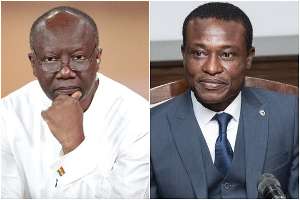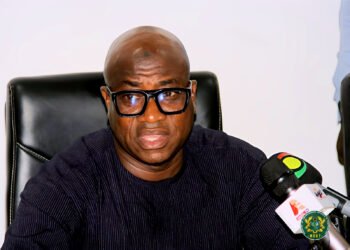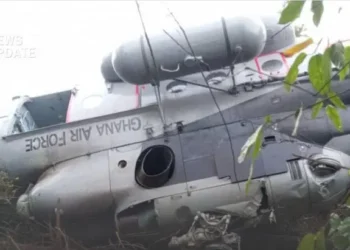The legal standoff between Ghana’s Office of the Special Prosecutor (OSP) and former Finance Minister Ken Ofori-Atta has ignited a fierce national debate, raising critical constitutional questions about due process, prosecutorial authority, and the very fabric of Ghana’s rule of law.
According to IMANI Center for Policy and Education, the controversy erupted when the OSP declared that Ofori-Atta had effectively become a “fugitive from justice” and sought an INTERPOL Red Notice for his arrest.
This unprecedented move has since thrown Ghana into a heated constitutional debate, with legal minds sharply divided on its implications.
IMANI Africa observed that, depending on one’s perspective, the OSP’s insistence on physical appearance may either reflect an “uncompromising pursuit of procedural integrity” or reveal an “overzealous power grab that crushes the presumption of innocence.”
At the heart of this conflict lies a deeper question: can Ghana’s legal system balance aggressive anti-corruption efforts with the constitutional rights enshrined in Article 19 of the 1992 Constitution, which guarantees fair trials for persons charged with criminal offenses?
Meanwhile, the OSP itself acknowledges that Ofori-Atta has not yet been charged with any offense.
“Mr. Ofori-Atta’s journey from the rank of finance minister to ‘wanted’ figure began in January 2025, when the OSP first notified him of five separate corruption inquiries and asked for his appearance on February 10.”
IMANI Center for Policy and Education
In response, Ofori-Atta’s legal team provided medical documents indicating he was receiving treatment abroad.
They offered to cooperate remotely but failed to commit to a definite return date. As deadline after deadline passed, with biopsy reports and surgical procedures cited as reasons for delay, the OSP interpreted these as deliberate attempts to evade the investigation.
By June 2, with no in-person appearance or fixed return schedule, the OSP escalated the matter by issuing an INTERPOL Red Notice.
This shifted what was initially a domestic legal confrontation onto the international stage, drawing in broader questions about jurisdiction and state power.
Accordingly, legal experts engaged in a spirited debate on the issue. Among them were Kofi Bentil, Vice President of IMANI, and Samuel Appiah Darko, Director of Research Strategy and Communication at the OSP.
Their exchange laid bare the profound legal and constitutional dilemmas this case presents.
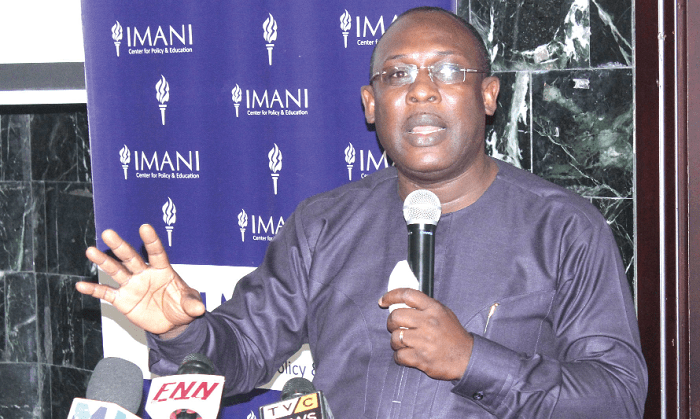
Bentil swiftly labeled the OSP’s move as a constitutional crisis. He argued that designating Ofori-Atta as a fugitive for failing to attend an investigatory meeting undermines Ghana’s constitutional guarantee of “innocent until proven guilty.”
According to Bentil, the OSP’s approach risks “trial by media” and establishes a dangerous precedent that could embolden arbitrary state action in the future.
Bentil emphasized that once sufficient evidence is gathered, the proper course should be to file formal charges in court.
Only then, he insisted, can the accused exercise their full legal rights, whether appearing in person or virtually if necessary.
“Due process serves as both shield and sword, protecting individuals from arbitrary state action while empowering the judiciary to adjudicate contested facts.”
Kofi Bentil
Appiah Darko, however, presented a sharply contrasting viewpoint rooted in procedural law.
He maintained that Ghanaian statutes strictly prohibit trials in absentia until formal arrest and charges have been laid. “Absent that arrest, there is no legal basis for proceeding in any forum—virtual or otherwise,” he argued.
Darko contended that accepting Ofori-Atta’s piecemeal medical submissions and vague travel plans would undermine the OSP’s ability to enforce anti-corruption laws effectively.
“To waive that requirement would be to allow suspects to dictate the scope and timing of investigations, thereby eroding the OSP’s capacity to enforce anti-corruption statutes.”
Appiah Darko
OSP’s Red Notice Raises Complex Questions
This legal tug-of-war reveals a much deeper conflict about the balance of power in a constitutional democracy.
On one hand, Bentil warned that turning a seriously ill man into a “wanted” figure for procedural noncompliance risks politicizing legal instruments and damaging the credibility of justice institutions.
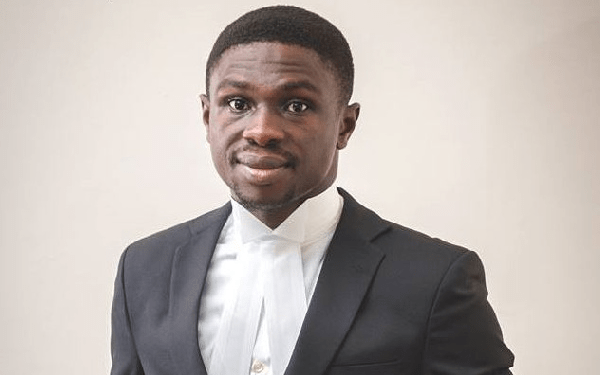
On the other hand, Darko insisted that “rules without teeth invite endless delay and expose anti-corruption bodies to strategic manipulation.”
Both perspectives carry significant weight. Ensuring individual freedoms requires constant vigilance against prosecutorial excess, while effective law enforcement demands firm adherence to legal procedures that compel compliance.
Accordingly, IMANI emphasized that the implications of this case extend far beyond Ofori-Atta himself.
If the OSP succeeds in rigidly demanding physical appearance before filing charges, wealthy suspects might indefinitely evade investigation using medical excuses.
Conversely, allowing suspects to dictate remote proceedings could permanently weaken the power of investigative agencies.
“Regardless, the curtains are yet to be drawn on this drama. Will Ken Ofori-Atta return, risking immediate arrest and trial, or will the OSP’s Red Notice prove a hollow threat? Might the interpretive jurisdiction of the apex court be invoked to clarify the interplay between Article 19’s fair-trial protections and the OSP Act’s investigative prerogatives?”
IMANI Center for Policy and Education

The think tank further suggested that this high-stakes showdown could inspire legislative reforms, such as creating a Mutual Legal Assistance framework that balances remote cooperation with strong enforcement powers. “What began as a dispute over one man’s obligations has become a landmark moment for the rule of law.”
IMANI concluded that the outcome of this legal saga will determine whether Ghana’s democratic institutions emerge stronger or more fractured in the face of mounting public scrutiny and evolving global standards of justice.
Ultimately, the clash between the OSP and Ken Ofori-Atta serves as a defining moment in Ghana’s ongoing struggle to balance constitutional rights with effective anti-corruption enforcement.
How this legal battle unfolds may set powerful precedents that will shape Ghana’s governance and rule of law for years to come.

